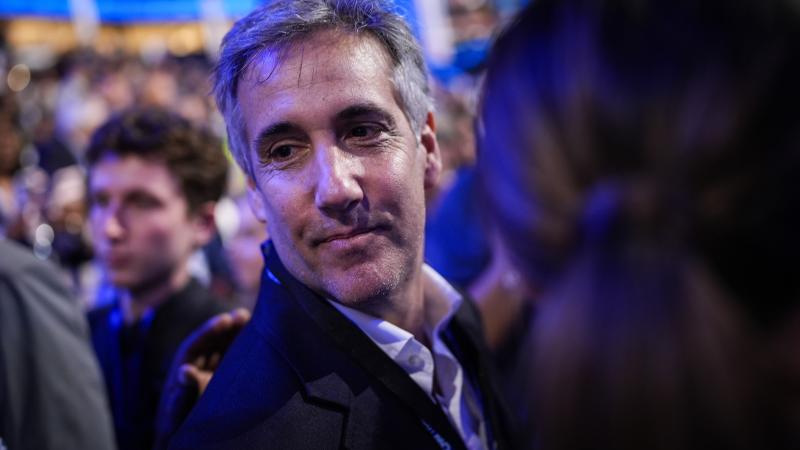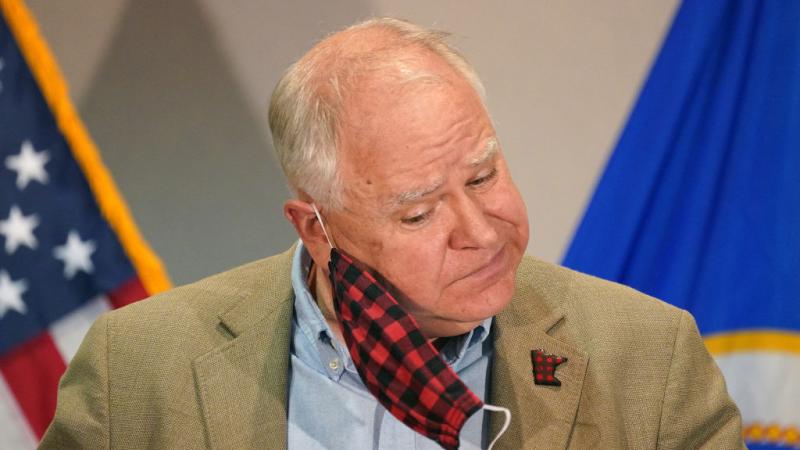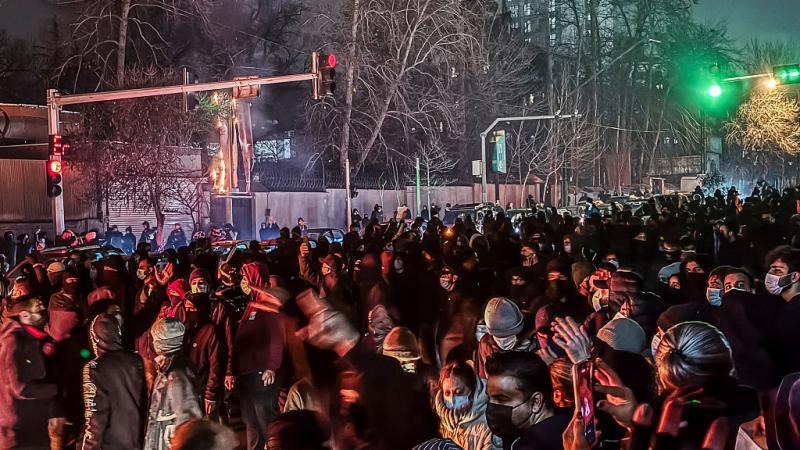Ex-Cleveland VA employee’s workplace harassment case delayed for years amid her cancer fight
The case of an alleged victim of workplace harassment at the VA has dragged out for two years, and faces more yet delays. “My theme here is ‘justice delayed is justice denied’ – you learn that on Day One of law school,” said lawyer Caryn Groedel.
A former employee of the Cleveland Veterans Affairs Center is suing her old employer over workplace harassment but has experienced multiple delays in her case for more than four years, and has yet to go to trial as she battles cancer.
Diana Sygula, who was an anesthesia technician at the Louis Stokes Cleveland Department of Veterans Affairs Medical Center from April 2010 to March 2023, filed a lawsuit in November 2020 over harassment, retaliation, and discrimination in the workplace. As she allegedly suffered harassment, retaliation, and discrimination at the Cleveland VA, she filed a lawsuit against the VA, which has been delayed again and again.
The judge in the case, U.S. Equal Employment Opportunity Commission (EEOC) Administrative Judge Larry A. Abrams, took nearly two years to issue a ruling and the agency has been slow to respond to the claimant’s lawyer. After leaving the VA, the claimant began chemotherapy to fight cancer, and her case was dismissed without prejudice for five months, meaning she can amend and refile the complaint for the fourth time.
Sygula’s lawyer, Caryn Groedel, said in a July 2020 letter to the VA that her client suffered gender discrimination beginning in 2016, when a man she says was less qualified than her was hired “for the Supervisor Anesthesia Tech position” without the job being posted for her to apply to.
The hiring decision was made by Dr. Susan Raphaely, who became section chief of the anesthesiology department in 2015 and was a friend of the man who was hired, Groedel's letter says. The VA did not respond to Just The News' request for comment.
Secret job openings alleged
“In complete derogation of the VA’s hiring policies and procedures, Dr. Raphaely made these placement decisions unilaterally,” Groedel wrote in her letter of representation for Sygula in July 2020.
The attorney for Sygula wrote that Raphaely “failed to post the Supervisor Anesthesia Tech position, for which Ms. Sygula would have liked to apply, and for which she had expressed her interest to Dr. Raphaely. However, Dr. Raphaely denied Ms. Sygula that opportunity, using the pretextual excuse that she was not required to post the position because it was an ‘emergency’ situation. This position would have been a promotion for Ms. Sygula, and would have increased her salary by thousands of dollars per year.”
Sygula's court papers say she began taking intermittent Family and Medical Leave Act of 1993 (FMLA) leave in August 2019 for a health condition but was allegedly harassed by Henley when she returned to work and interrogated “about what she did on her day off,” according to her third amended complaint, from April 2023.
After Groedel’s letter of representation was sent to the VA for Sygula in July 2020, “Raphaely started seeking negative feedback about [Sygula] from her co-workers, and inferred to her co-workers, including in a meeting, that they should report her due to her health conditions, with a defamatory inference that she is not able to perform her job duties effectively,” the complaint adds.
Allegations of retaliation
In April 2021, Sygula received “a worse performance review/evaluation” because she began legal proceedings and continued to take FMLA leave, the lawsuit reads.
Three months later, Sygula sustained an injury at work and was placed on six to eight weeks of medical leave. Even though she should have been placed on leave with pay, she says, she was placed on leave without pay.
In December 2021, two months after Sygula returned from medical leave, she was informed that her leave without pay "was to be retroactively changed to Absent Without Leave (AWOL) ... because her 'absence required other team members in the department to cover her duties and work overtime, causing hardship to the Anesthesia Service,'" according to the amended complaint.
Sygula “appealed the designation as AWOL, and the denial of her Worker's Comp claim, and prevailed, but it nonetheless caused her to incur legal fees and emotional distress,” the lawsuit reads.
In January 2023, VA administrator Raoul Rios purportedly said he wanted to designate Sygula as "AWOL" for the approved intermittent FMLA leave she had taken. The person to whom Rios reported -- called a "timekeeper" in such cases -- allegedly said that doing so "would be improper" and informed Sygula that she was the only Cleveland VA employee "being aggressively pursued" for taking FMLA leave, according to Sygula’s complaint.
Sygula “felt so threatened, stressed, and emotionally and physically harmed by [the VA's] incessant efforts to find a way to designate her AWOL, terminate her employment, and cause her to lose her pension (all condoned by Dr. Raphaely), that she went out on leave without pay and began the process of applying for disability retirement,” the amended complaint says.
Case delays spanning years
There have been multiple delays over the course of Sygula’s case.
The case records indicate that Judge Abrams delayed a substantive ruling for nearly two years.
On July 24, 2023, Groedel’s paralegal emailed the judge, writing, “Ms. Groedel would like to inquire as to your ruling on Complainant’s Motion for Leave to File Third Amended Complaint Instanter filed on April 25, 2023 in the above-referenced matter.”
Nine months later, on April 14, 2024, Groedel’s paralegal wrote, “Please allow this to follow up my July 24, 2023, email in the above-referenced matter. On April 25, 2023, Complainant filed her Motion for Leave to File Third Amended Complaint Instanter, and to date we have yet to receive a ruling on our motion.”
In December of that year, Groedel followed up, writing, “Discovery requests are due today, and I have to limit them to what you have allowed per your ruling on our Motion to file Amended Complaint because you have yet to advise me of the procedure for objecting to your ruling. I ask you to please... since this case has been pending for so many years and 2 of our witnesses are now deceased... to apprise my client and me of the procedure you promised to apprise us, so we can obtain the full panoply of discovery we wish to request.”
Judge Adams responded on Jan. 6, 2025 that “The order/notice will be issued shortly.” Abrams finally issued an order on Feb. 6, 2025.
A labyrinth of bureaucratic tunnels
The VA delayed in responding to Groedel’s settlement offer.
On March 4, 2025, Groedel emailed Abrams, writing that she had called VA lawyer Amber Groghan “the first week of February to share with her that Ms. Sygula is undergoing chemotherapy and therefore either needs to put this matter on hold or settle it. Ms. Groghan told me that she understood the gravity of the situation and agreed that, if I forwarded a settlement demand to her, she would use her best efforts to get a prompt response to me."
Grodel complained to the judge that “I forwarded [Groghan] a demand on February 14, 2025. She did not even [extend] the courtesy of responding to me regarding the demand. I sent her a follow-up letter on February 19, to which she responded, ‘I'll review with my client asap and get back to you.’ Needless to say, as usual, Ms. Groghan did not get back to me. Neither did she respond to my February 28 or March 4 follow-up letters.”
Three days later, Abrams responded to Groedel, saying, “I understand your frustration with not yet receiving a response to your settlement offer, but I also understand the difficulties that agency attorneys experience in obtaining responses from person(s) who have settlement authority in a case. I will consider issuing an Order requiring a response to your settlement proposal by a date certain. However, I acknowledge that, if the settlement authority has not yet decided how to respond to the offer and/or has not yet communicated the decision to Ms. Groghan, the Agency is likely to timely comply with the order by responding with a rejection of the offer.”
The next day, Dennis McGuire, chief counsel of the Midwest District for the VA’s Office of General Counsel, responded, saying, “Ms. Groghan is working on an analysis for our client to review and recommended settlement authority for this case. I’m aware of your current demand for settlement and your request to stay the case for six months in light of your client's health condition. Suffice it to say that after my review of the case, I am comfortable with the way Ms. Groghan is handling this matter and will speak to her on Monday about an estimated timeline to get a response to your demand back to you.”
No choice but to ask for a delay
On March 12, Groedel again wrote to Judge Abrams, saying “There is no valid reason in the world why Ms. Groghan has not responded to my settlement proposal -- other than to delay these proceedings with a deliberate and gross indifference that is alarming. And with all due respect, I cannot understand your refusal to compel Ms. Groghan to speak to her superiors by a date certain and respond to my proposal by a date certain.”
The next day, Groedel emailed, “The parties are at an impasse with respect to settlement. I hereby request a 6-month stay of the proceedings as Ms. Sygula undergoes treatment for her serious health condition. I would like to be able to shorten the stay if it turns out Ms. Sygula's treating physician releases her earlier than 6 months.”
On March 14, Abrams dismissed the lawsuit without prejudice due to Sygula’s “medical condition and her inability to actively participate in the prosecution of her case.” As a result, Sygula’s request for a hearing was dismissed and she can refile in late August. However, if Sygula is able to participate in her case before August, she may notify the judge, who will then reinstate her hearing request and reopen her case. Judge Abrams did not respond to Just The News' request for comment.
Lack of ownership creates a high hurdle
Groedel told Just the News last month, “When you sue a corporation, they have shareholders, they care, but not so with the VA. Very few people are looking at the bottom line – they're willing to spend years, years, of lawyers and judges’ time, and they don't care because it's taxpayer dollars.”
Another former employee at the Cleveland VA, “Ron Lisan – he had a great case” against the Cleveland VA “and lost,” Groedel said. “You can't win against the VA.”
Groedel said she filed an amended complaint about another alleged instance of harassment committed by Sygula’s superiors, and that judge “took two years to rule on it,” despite her sending multiple letters over that time, asking for a ruling.
The judge didn’t force the VA to “keep to deadlines” and didn’t “keep to any himself,” Groedel said.
The whole case has “been a horrible experience” for Sygula, according to Groedel, who called it “one of the worst-delayed situations I've encountered in 39 years of practicing law.”
Groedel told Just the News earlier this month that the judge’s March order to dismiss Sygula’s case without prejudice was “crazy” because he could’ve granted her request for a six-month stay. However, dismissing the case could give someone the impression that “it doesn’t look like it's been on his docket for 5 years,” she said.
“My theme here is ‘justice delayed is justice denied’ – you learn that on Day One of law school,” Groedel said. Sygula has “continued to be denied justice by bureaucratic BS. The delay, constant requests for postponement – nobody’s accountable,” she added.
“Public employees feel covered and protected, but they’re really not because” they get “backlogged in bureaucracy for years,” Groedel said.














